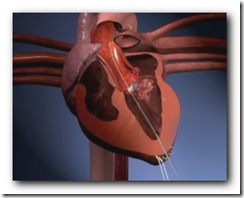If you read any on stents these days, you will know there are a lot of them around and very specifically made for certain area of the body and treatments, everything  is this way today, drugs included with gnomically based and created medications. Cancer drugs are a perfect example and why tests are being researched and created to find the “cancer of the unknown” which makes every difference in the world as to the selection of drug used for treatment and now we have off label allegations in medical devices too.
is this way today, drugs included with gnomically based and created medications. Cancer drugs are a perfect example and why tests are being researched and created to find the “cancer of the unknown” which makes every difference in the world as to the selection of drug used for treatment and now we have off label allegations in medical devices too.
The article states that over one million stents were used “off label” from 2003 to 2006 to open clogged blood vessels in other areas of the body, and the report included deaths and injuries occurred as a result of a malfunction of the device. When you get into stents, they are very specific and for a very simple example, blood flow varies and you would not want a stent that was made to handle lower levels of blood flow in an area of the body where there is more pressure. Vascular stents need more durability for a quick explanation.
Just from writing this blog and conducting some interviews, by osmosis I have a little bit of knowledge here about stents. I did an interview with Cook Medical and one item I learned about leg therapies is that this type of stent needs special design when placed in a leg, why? Because it moves and with a heart, well you can tell the difference right there, the heart stays in one place, legs do not, thus extra time and trials for a stent that is going to not move and continue to provide blood flow when the legs are moving. The stents in the legs were supported with micro wires. At the bottom of this post are several interviews/articles where I was educated on stents by Cook Medical and worth a read, to include talking with Dr. Bart Muhs, Head of interventional surgery at Yale University.
I also learned that some of the pre-medicated stents also use a cancer drug, that is legal and FDA approved for use with placement of a stent as it helps with rejection with the body, so when you think about it, perhaps due to the fact that the impregnated stent had this drug embedded, it somehow was used off label? That part is just a guess from me.
I would guess if they were implanted, autopsies from deaths and inspection of patients who have the stents implanted would be in order to investigate. 
Be the informed patient today and ask questions – know your stent!
Here’s that same post that has been floating around this blog for 2 years and still appears to be true, algorithms and whistleblowers, 2 big items that generate money in healthcare. BD
"The New Hot Words in Healthcare Algorithms and Whistleblowers”
A former medical device executive claimed in a potential whistle-blower lawsuit that was unsealed this week that the makers of stents approved to treat digestive tract cancers had illegally marketed them for years to treat blocked blood vessels in other parts of the body.
In the lawsuit, Kevin N. Colquitt, a former regional sales director for Guidant, stated that he had been trained to market the devices, which are known as biliary stents, to doctors for off-label uses not approved by the Food and Drug Administration.
Along with Guidant and Abbott, which acquired Guidant’s stent operations, the other defendants in the lawsuit are Boston Scientific and Cordis, a division of Johnson & Johnson. A spokesman for Abbott disputed the lawsuit’s accusations. Spokesmen for Cordis and Boston Scientific declined to comment on the suit’s specifics.
Suit Says Makers Marketed Stents for Unapproved Uses - NYTimes.com
Related Cook Reading:
Cook Medical Announces FDA Clearance for Advance® 35LP PTA Balloon Dilatation Catheter - PVD
Cook Medical Unveils MicroWires to support Leg Therapy - Peripheral Arterial Disease



0 comments :
Post a Comment